Opening your home to travelers? Vacation rental safety is the number one thing you don’t want to leave to chance. As a host, you’re responsible for providing a welcoming environment where guests can feel relaxed while also taking practical steps to protect your investment. Balancing these priorities doesn’t have to be overwhelming. In this guide, we’ll share practical tips on how to protect your property and give your guests a stay they can feel comfortable in.
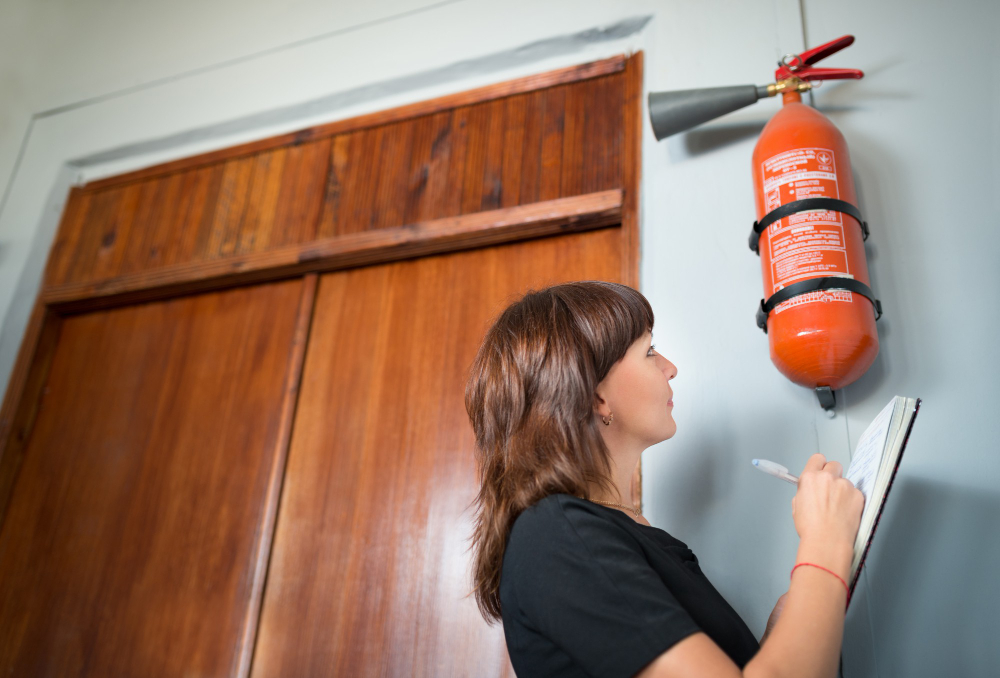
Why safety is crucial in vacation rentals?
Vacation rental safety is crucial not only for protecting your property but also for ensuring a positive guest experience:
- Builds guest confidence: When guests see you’ve thought about their safety, they feel comfortable and more at home, which leads to positive reviews and often repeat bookings.
- Reduces worry about liability: Having clear safety measures in place means you’re less likely to deal with accidents or claims, helping keep your rental experience smooth and worry-free.
- Protects your short-term rental property: Simple safety steps prevent unnecessary wear and tear, saving you money on repairs and keeping your place in top shape.
- Creates a relaxing atmosphere: A safe space lets guests fully unwind and enjoy their time, knowing they’re in a well-cared-for environment.
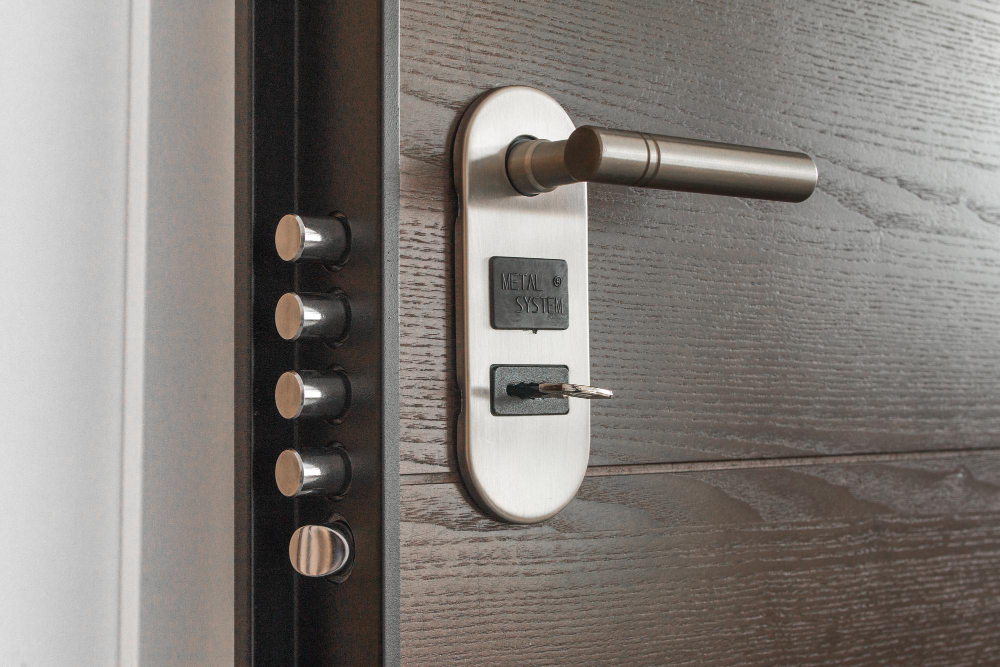
9 tips for vacation rental safety
1. Conduct a safety audit of your property
It’s essential to conduct a safety audit before listing a property. Check for things like secure locks on all doors and windows, smoke and carbon monoxide detectors, emergency exits, and well-maintained fire extinguishers. Take a walk-through from the perspective of a first-time guest—do you feel safe? Are there areas that could pose hazards?
Every detail matters, from securing stair railings to ensuring adequate lighting in hallways and outdoor spaces. If your rental includes amenities like a pool, hot tub, or fireplace, the welcome manual should include safety instructions and reminders.
2. Set up a home security system
A robust home security system is one of the best investments you can make in your short-term rental. Beyond preventing theft or unauthorized access, a security system also reassures guests that their stay will be safe. Choose a system that fits your needs—smart locks, motion detectors, and cameras for exterior monitoring can all add layers of security.
It’s important to be transparent with your guests about any visible security measures, such as outdoor cameras, and explain that they’re in place for their protection. Smart locks, in particular, offer the benefit of being able to change access codes between each guest stay, reducing the risk of lost or copied keys.
3. Limit access to sensitive areas
If certain parts of your property aren’t meant for guests, make sure they’re securely locked and marked as private. For example, storage rooms, utility closets, or personal storage spaces should be off-limits to avoid unauthorized access and protect both your belongings and your guests’ safety.
Using a keypad or key lock in these areas not only secures your valuables but also helps prevent accidental access to areas that may contain hazards, such as cleaning supplies or electrical equipment.
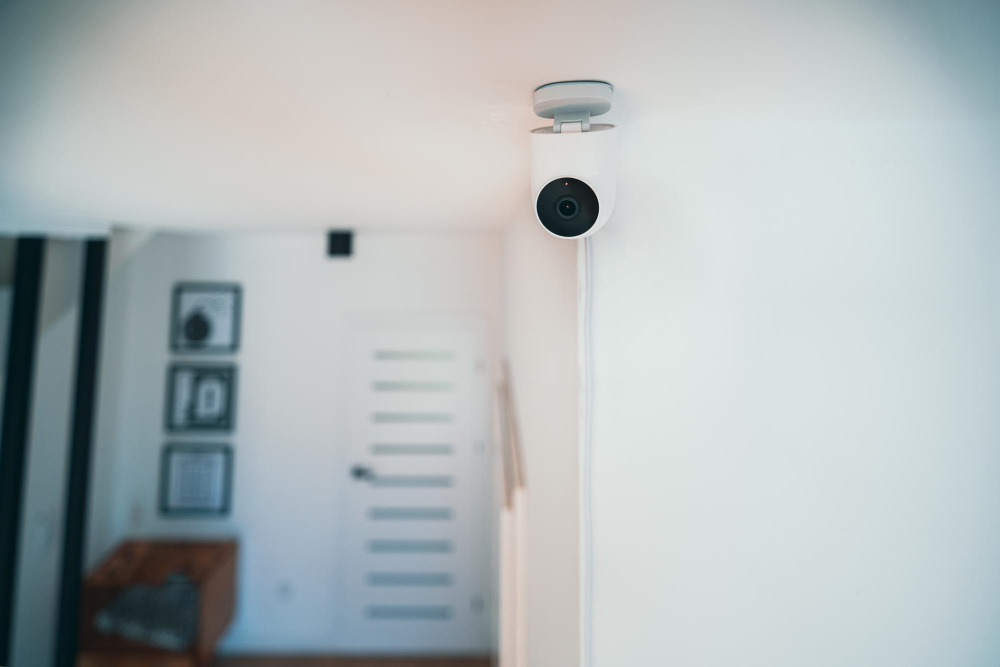
4. Provide clear instructions for emergencies
Emergencies happen, and being prepared is essential. Equip your rental with a clearly visible, up-to-date list of emergency phone numbers, including local police, fire departments, and nearby hospitals. Display this information prominently, perhaps on the fridge or in a welcome binder, so it’s easy to find in stressful moments.
Providing a simple first-aid kit can make a big difference in minor emergencies and demonstrates that you’ve thought of your guests’ well-being. If your rental is in an area prone to specific risks like hurricanes or earthquakes, include specific emergency procedures in your guest manual.
5. Maintain a safe environment with regular inspections
Wear and tear happen over time, especially if your property is rented out frequently. Schedule regular inspections to check for hazards like loose floorboards, faulty wiring, or plumbing issues. Things like loose handrails, worn electrical outlets, or blocked emergency exits can pose serious risks but are often easy to fix with routine checks.
Regular maintenance not only keeps your home in top shape but also helps prevent accidents. Plus, when guests see a well-maintained property, it adds to their comfort and trust.
6. Set clear safety rules in your house manual
Think of your property’s house manual as a friendly guide to help guests make the most of their stay while staying safe. Include clear instructions on everything from how to operate appliances to the rules for using features like pools or fire pits. Remind guests of basic safety practices, such as locking doors and windows when they leave or turning off appliances when not in use.
Safety instructions shouldn’t be overwhelming but easy to follow. For example, if you have a fireplace, include simple steps on using it safely and remind guests to make sure it’s fully extinguished before they leave. If there’s an alarm system, explain how to use it so guests feel comfortable and informed.
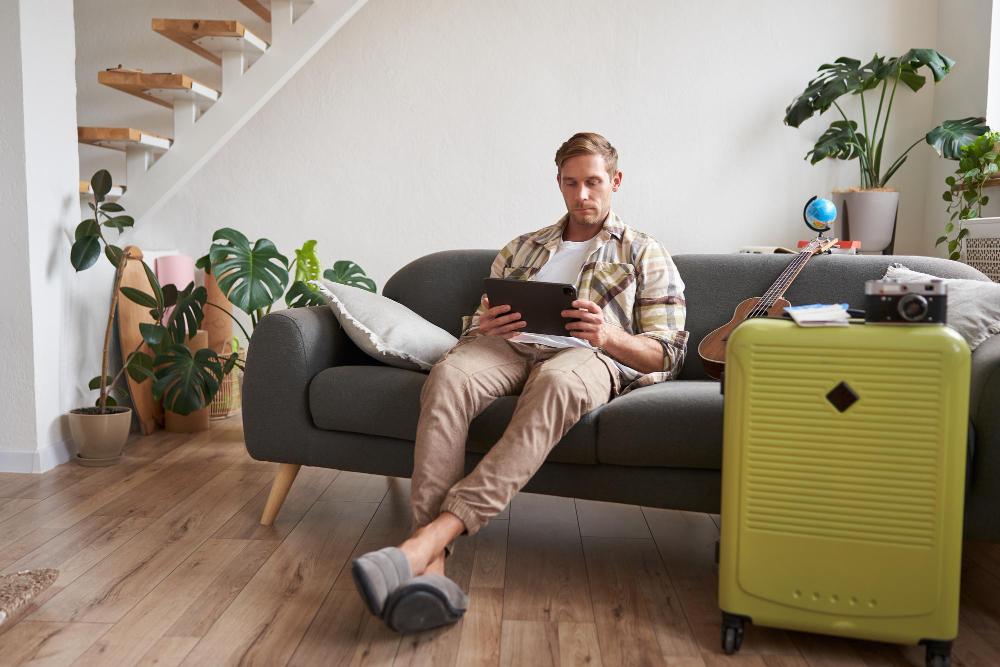
7. Communicate openly with guests about safety protocols
The more informed your guests are, the safer they’ll feel. Before arrival, send guests a welcome message that includes an overview of the property’s safety features, like emergency contacts, the location of first-aid supplies, and entry codes. Highlight important details such as fire escape routes or how to reach emergency services from your location.
Once guests check-in, encourage open communication. Let them know they can reach out if they notice any potential issues. Being approachable creates a positive rapport and makes it more likely that guests will respect your property. Open communication also allows you to address minor concerns before they escalate, creating a more enjoyable experience for everyone.
8. Invest in liability insurance
Despite the best precautions, accidents can happen, which is why having proper liability insurance is a must for any short-term rental host. Traditional homeowners insurance often doesn’t cover short-term rentals, so look into options that specifically cater to vacation or short-term rental properties. Insurance policies tailored for rentals cover a range of scenarios, from guest injuries to property damage, giving you financial protection and peace of mind.
Talk with your insurance provider to understand what’s covered and ensure you have sufficient liability limits. Some OTAs may offer insurance coverage as part of their services, but it’s wise to have your own policy to protect against any gaps. Having the right coverage means that, even in unexpected situations, you’re better protected from legal or financial risks.
9. Childproof your space if it’s family-friendly
If your property is advertised as family-friendly, consider adding basic childproofing to keep young guests safe. Simple precautions like securing heavy furniture, covering electrical outlets, and adding safety gates near stairs can help prevent accidents.
Additionally, if you provide amenities like a crib, high chair, or play area, ensure that they are clean, well-maintained, and meet current safety standards. Guests with children will appreciate the extra steps you’ve taken to make the space safer and more welcoming.
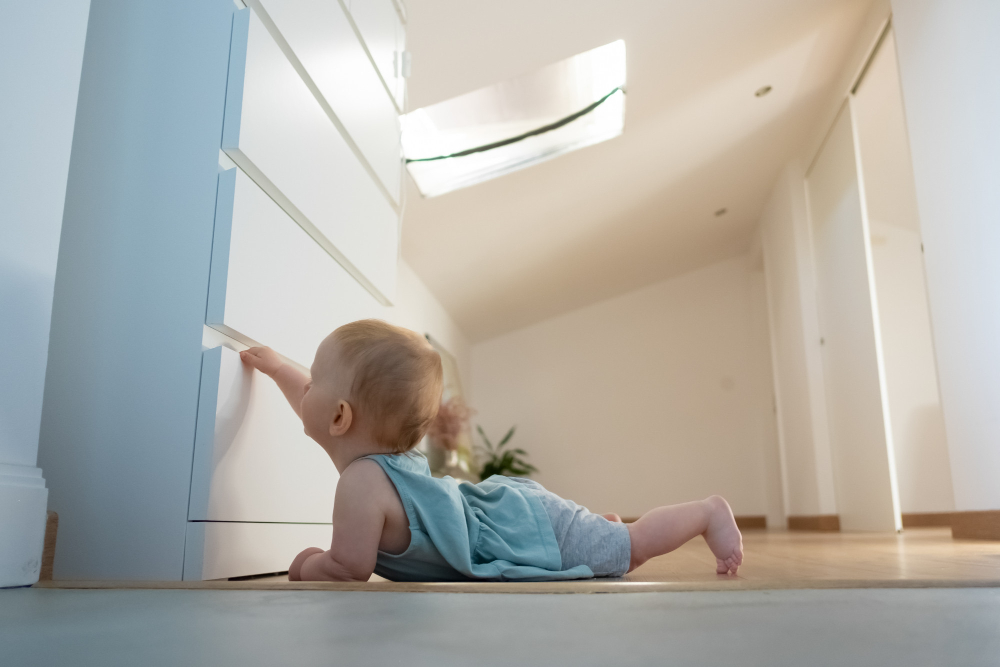
Time to prioritize vacation rental safety
Prioritizing safety in your vacation rental is more than just protecting your property. It’s about giving your guests peace of mind and making their stay as comfortable as possible. These simple actions can build trust and bulletproof your business.
With Hosthub’s property management system (PMS) and channel manager, you can streamline communication, track maintenance tasks, and manage guest information in one place. Hosthub helps you stay organized so you can focus on creating a secure and welcoming environment that keeps guests coming back. Start a free trial or request a demo today!



